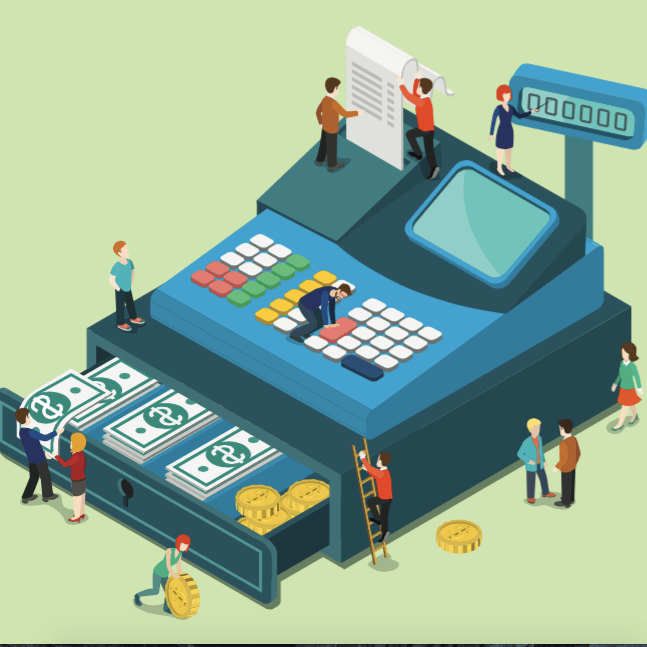Los Angeles mayor Eric Garcetti gave new life to the minimum wage debate after signing a bill to increase the city’s minimum wage to $15 per hour by 2020. Garcetti argued that increasing the minimum wage would end “back breaking poverty” and “help 600,000 Angelenos pay their rent, provide for their children and build their savings accounts.”
The announcement comes on the heels of many other large cities’ minimum wage increases. San Francisco, San Diego, Seattle and Chicago have all made minimum wage increases within the last year.
Supporters and opponents to the minimum wage increase have taken the opportunity to sound off on the subject on a variety of platforms. Millennials trying to figure out their opinion on the topic could spend endless hours sifting through contradictory case studies, heated on-air debates and lengthy academic articles.
But don’t worry because GenFKD is here to break down what it actually means to raise the minimum wage.
The Good
While there is a lot of disagreement as to how the minimum wage affects the market, in the short term the minimum wage translates into more money in the pockets of consumers. If minimum wage workers have more money, then odds are that they will spend it, thus stimulating the economy.
Increasing the minimum wage can be good news even for people earning more than the minimum, as it can put pressure on businesses to raise the wages of workers slightly above that line.
It is important to make small increases in the minimum wage every few years or so because the minimum wage becomes outdated as soon as Congress sets the new federal minimum. This is simply to keep up with inflation and to ensure that the minimum wage retains its value. In fact, a 2013 study by the nonpartisan Economic Policy Institute found that the current federal minimum wage of $7.25 per hour is actually worth $2.00 less in real dollars than it was at its peak value in 1968. That means that when Congress fails to adequately adjust the wage for inflation, we are faced with a nominal $7.25 wage that is worth less than a nominal $1.60 wage.
The Bad
While increasing the minimum wage will have workers fist pumping like Judd Nelson at the end of The Breakfast Club that’s not quite how businesses are feeling about the subject. For employers, an increase in the minimum wage will force them to make some tough choices in order to maintain a profit. This could mean either letting go of some employees and/or raising prices. These are fundamental changes to their business model which can often be the difference between staying in business or closing down.
Businesses (especially small businesses which tend to be more strained in these instances), might cut costs by replacing some of the low-skill minimum wage earners with technology. By turning low-skill jobs into automated or self-serve machines, businesses can make room to hire fewer workers but ones that are probably higher-skilled.
The fear of losing jobs is a big problem, especially when Millennials are facing extreme underemployment in the post-Great Recession era. Millennial post-grads shouldn’t worry too much, though; that diploma is enough to consider you a skilled worker. This means that post-grads should be able to retain their minimum wage jobs if employers decide to cut low-skill jobs in favor of technology.
But not everyone has a diploma to protect themselves from the dreaded pink slip. For low-skill workers who use the minimum wage as a living wage, raising the minimum can be a gamble. If these workers are able to avoid the job cut, then they are able to benefit the most from the wage increase.
Our Take
The reality is that the economy is inherently more complex than the charts you studied last semester in Econ 101. While all the graphs make sense on paper, in the real world there are infinite variables at play.
When looking at a spreadsheet it’s easy to forget that the workers are people, too, with individual needs and motivations. With this in mind, it’s important to remember that minimum wage workers enjoy a pay raise as much the next person, but once we add in the “human factor” we open an entirely new can of worms.
Personally, I think that we’re all still a little skittish from the Great Recession and we’re afraid to do anything to mess up our carefully pieced-together economy. Still, we can’t look at minimum wage as the Jenga piece that will bring the whole tower down.
While everyone has their own opinions on what constitutes an adequate minimum wage, everyone can agree that the minimum wage debate is a multi-faceted issue that continues to perplex us. Let us know what you think about the new minimum wage in the comments below.











































Kevin G
June 19, 2015 at 6:47 pm
Great blog on the minimum wage. I, of course, am more skeptical of minimum wage increases or even having a minimum wage at all. Many more teens could be able to make a few bucks in their early years and the minimum wage may be pushing a huge share of them out. Minimum wage jobs are used to for gaining the skill-sets that are taken for granted like, knowing how to talk to bosses, learning how to get a paycheck, being on time, talking to coworkers, dealing with customers, and so on and so forth. In addition to allowing younger, unskilled workers into the workforce, wages are sticky going up and going down. I’m pretty sure that if the minimum wage law was repealed, wages would stay right around where they are now. If they go too low, people just won’t work for them. But nonetheless, it is a political hot button that will continue to get attention from both sides. Way to present them!